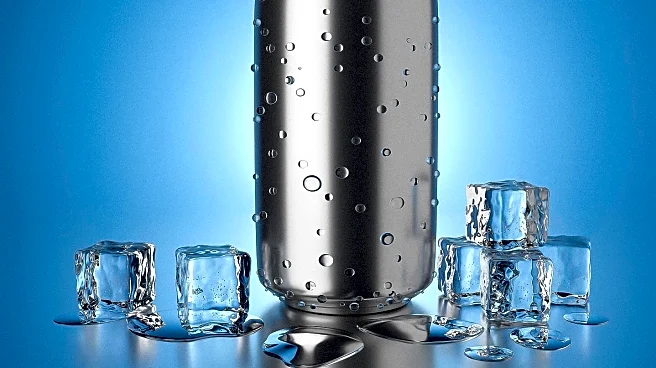What is the story about?
What's Happening?
The Erdinger brewery near Munich, a historic beer producer since the 1880s, has observed a significant shift in drinking habits among young Germans. According to Stefan Kreisz, the brewery's chief executive, about a quarter of their production is now non-alcoholic beer. This change reflects broader trends in Germany, where non-alcoholic beer sales have more than doubled since 2013, as reported by Germany's Destatis federal statistics office. Despite the overall decline in beer sales, which have reached their lowest level in over 30 years, non-alcoholic options are gaining popularity. The cultural shift is evident in places like Café Kosmos in Munich, where customers are increasingly health-conscious and opt for alcohol-free beverages.
Why It's Important?
The growing preference for non-alcoholic beer among young Germans signifies a shift in social and cultural drinking habits. This trend could impact the traditional beer industry, prompting breweries to adapt their product offerings to meet changing consumer demands. The rise in non-alcoholic beer consumption may also reflect broader health and wellness trends, as consumers become more conscious of their alcohol intake. This shift could influence marketing strategies and product development within the beverage industry, potentially leading to increased innovation in non-alcoholic options.
What's Next?
Breweries like Erdinger may continue to expand their non-alcoholic product lines to cater to the evolving preferences of younger consumers. As the demand for non-alcoholic beverages grows, other breweries might follow suit, leading to increased competition and innovation in the market. Additionally, the cultural shift towards health-conscious consumption could drive further changes in social drinking norms and practices across Germany.
Beyond the Headlines
The shift towards non-alcoholic beer consumption may have deeper implications for the German beer culture, traditionally known for its robust beer-drinking heritage. This change could influence social interactions and gatherings, as younger generations prioritize health and moderation. The trend might also reflect broader societal shifts towards sustainability and responsible consumption, impacting not only the beverage industry but also related sectors such as hospitality and tourism.
















